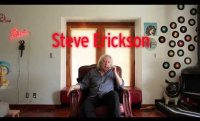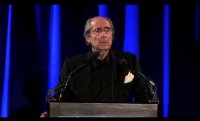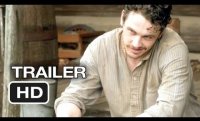National Book Critics Circle Launches First Book Award
The National Book Critics Circle (NBCC) has announced the creation of the John Leonard Award, a new prize honoring a first book of poetry, fiction, nonfiction, biography, criticism, or autobiography. The recipient of the award—who will be selected by the NBCC’s member critics and editors—will be announced at the annual NBCC awards ceremony in early 2014.
The new award is named in honor of John Leonard, a literary critic and former editor of the New York Times Book Review. A founding member of the NBCC, Leonard (1939–2008) was known not only for his criticism of books, film, and television, but also for his encouragement of young critics and the attention he paid to debut writers. “One of the first American critics to write on Toni Morrison, Maxine Hong Kingston, and Gabriel Garcia Marquez, Leonard shared his enthusiasms with a wide reading audience,” the NBCC reported in a press release. “In creating the John Leonard Award, the NBCC recognizes his commitment to nurturing new authors.”
Founded in 1974, the National Book Critics Circle Awards are given annually "to honor outstanding writing and to foster a national conversation about reading, criticism, and literature." The awards are open to any book in English, including translations, published in the United States in the previous year. Poet D.A. Powell and fiction writer Ben Fountain received the 2012 awards. The John Leonard Award will be the first award selected directly by the NBCC’s membership—which is comprised of nearly five hundred book critics, editors, and authors nationwide—rather than by its board of directors.








